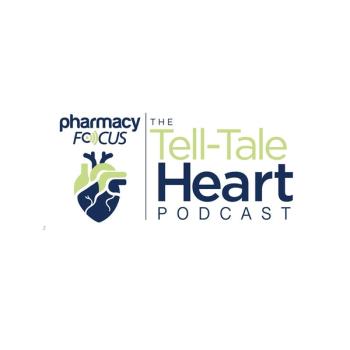
Study: Relatlimab, Nivolumab Improve Progression-Free Survival in Metastatic Melanoma
The FDA granted priority review to the combination of relatlimab and nivolumab in September 2021 based on the results of this study.
The combination of relatlimab and nivolumab was found to double the progression-free survival (PFS) benefit in patients with untreated, advanced melanoma, according to a new study from the University of Texas MD Anderson Cancer Center.
Relatlimab is a novel antibody that blocks lymphocyte-activation gene 3 (LAG-3), which is found on the surface of T cells. LAG-3 is often upregulated in patients with melanoma, as is programmed cell death protein 1 (PD-1), which is inhibited by nivolumab. According to the researchers, these are the first phase 2/3 clinical trial results from a third-generation checkpoint inhibitor and this was the first clinical trial designed to compare combination checkpoint inhibitor therapy versus nivolumab monotherapy in melanoma.
The trial enrolled 714 patients with untreated, unresectable stage 3 or 4 melanoma across 111 international sites between May 2018 and December 2020. Participants were randomized to receive either nivolumab alone or the combination of relatlimab and nivolumab once every 4 weeks.
Sixty patients (8.4%) had received prior targeted therapy or adjuvant immunotherapy at least 6 months before recurrence or received interferon 6 weeks before randomization. The median age of participants was 63 years, 41.7% were female, and 96% were white.
At the time of the data cutoff, median follow-up was 13.2 months with 470 patients (65.8%) having discontinued treatment. The most common reason for discontinuation was disease progression, with 36.3% in the combination arm and 46% in the monotherapy arm.
According to the press release, median PFS was 10.1 months in the combination arm, compared with 4.6 months in the monotherapy arm. After 12 months’ follow-up, PFS rates were 47.7% in the combination arm versus 36% in the monotherapy arm, with a 25% lower risk of disease progression or death in the combination arm.
“The results from this global effort advance the field of immunotherapy by establishing a third class of immune checkpoint inhibitors through the LAG-3 pathway and have the potential to be practice-changing,” said lead author Hussein Tawbi, MD, PhD, in the press release. “We’ve seen historic developments in melanoma treatment over the last decade with the combination of PD-1 and CTLA-4 inhibitors, which work well but also carry substantial toxicity. This study represents a significant and long-awaited next step toward providing patients with effective and safer treatment options.”
This benefit was seen across pre-specified subgroups, including BRAF status, tumor stage, lactate dehydrogenase levels, and LAG-3 and PD-1 expression. Furthermore, the FDA granted priority review to the combination in September 2021 based on the results of this study. Currently, PD-1 and CTLA-4 inhibitor monotherapy and combination therapy are approved frontline treatment options for metastatic melanoma. According to the press release, the combination therapies benefit more patients than monotherapy, but also have significant impacts on quality of life due to toxicity rates of more than 50%.
In the study, grade 3 or 4 treatment-related adverse events (AEs) occurred in 18.9% of patients in the combination arm and 9.7% in the monotherapy arm. The most common grade 3 or 4 AEs included increased levels of pancreatic and liver enzymes as well as fatigue. Investigators determined that 3 deaths in the combination arm and 2 deaths in the monotherapy arm were treatment-related.
Immune-mediated AEs included hypothyroidism or thyroiditis, rash, and colitis. No new safety signals were identified and patients rated their health-related quality of life similarly across both treatment arms.
“We now have evidence of a clear benefit for combination therapy compared to single-agent PD-1 inhibitors, and we’re looking forward to seeing response and overall survival data,” Tawbi said in the press release. “We’re also thinking about the populations that were excluded from this trial, including those with untreated brain metastases and uveal melanoma, so that all patients can have a change to take advance of the progress we’re making against melanoma.”
REFERENCE
Relatlimab plus nivolumab improves progression-free survival in metastatic melanoma. News release. MD Anderson Cancer Center; January 5, 2021. Accessed January 7, 2021.
Newsletter
Stay informed on drug updates, treatment guidelines, and pharmacy practice trends—subscribe to Pharmacy Times for weekly clinical insights.







































